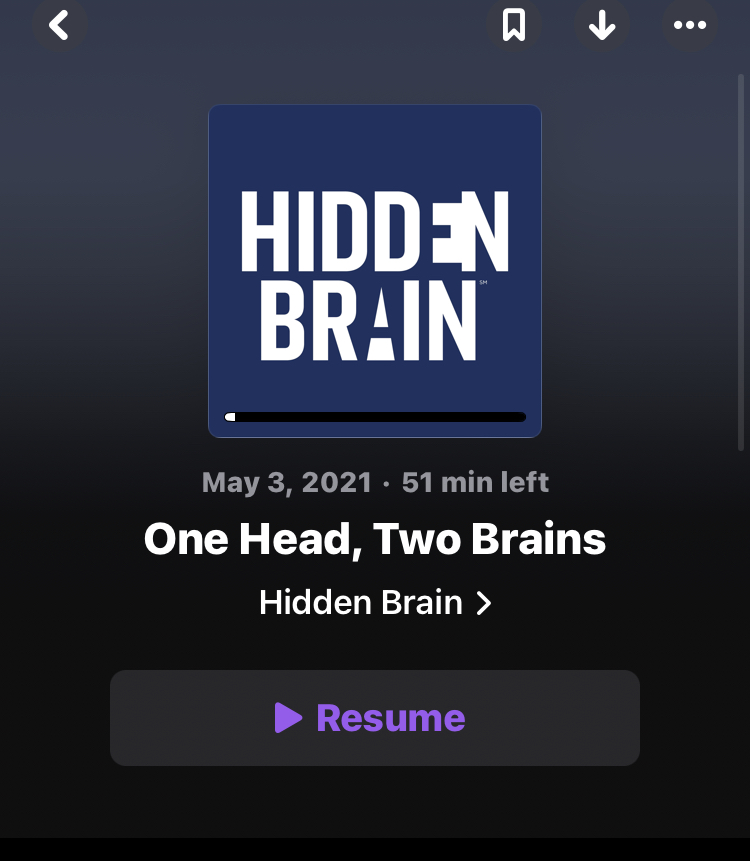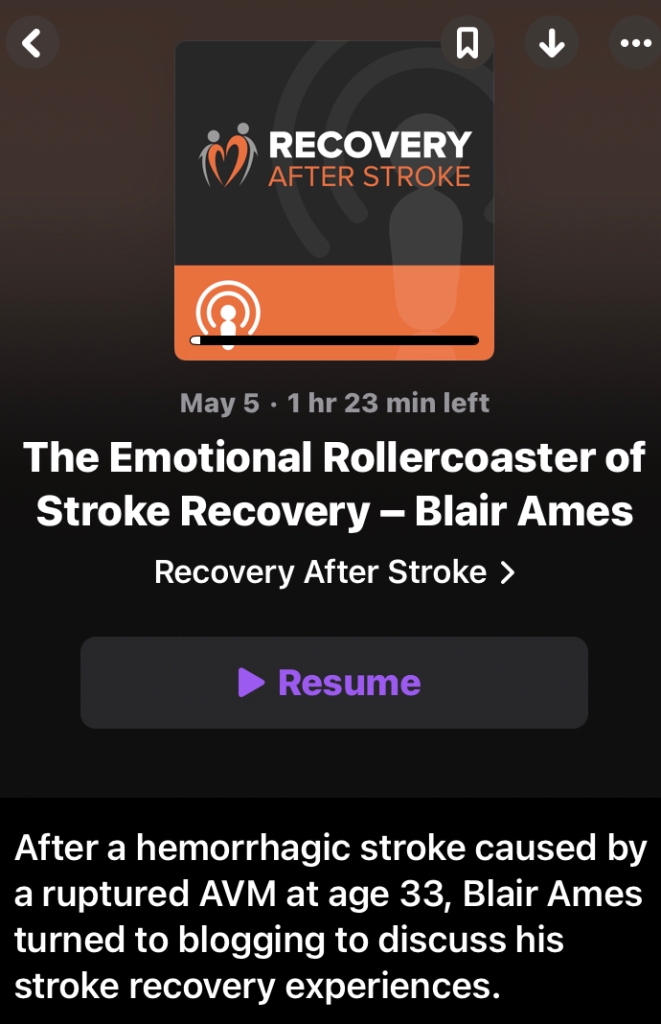I was oblivious to any mental or emotional challenges I might face in stroke recovery during my time in the hospital and in-patient rehab.
In the days and weeks after stroke, my attention was focused on planning the exercises I would need to rebuild myself physically. Learning how to walk and move my fingers again was top of mind.
However, once I returned home and my physical abilities did not come back as quickly as I wished them to, the mental and emotional side of recovery proved to be a more significant challenge than any physical exercise.
The Emotional Rollercoaster of Stroke Recovery
Stroke recovery in and of itself is a frustrating experience. The physical aspect of recovery is what everyone sees and uses as a measuring stick to congratulate you on your progress.
But on the other hand, the emotional and mental aspects of recovery are often not known to others and progress is not measured as easily as how far you could walk today.
After stroke, you’re faced with the sadness, disappointment, and frustration of your situation. It can feel like you’re living life as a lesser version of yourself no matter how much effort you put into your physical recovery.
I often questioned my self-worth and why I put so much effort into recovery since it felt like it was progressing so incredibly slowly.
Like other stroke survivors, I went to bed at night wondering what it would be like to wake up the next day feeling like my pre-stroke self. It’s an emotionally exhausting experience to work through every day.
Like other stroke survivors, I went to bed at night wondering what it would be like to wake up the next day feeling like my pre-stroke self. That’s an emotionally exhausting experience to work through every day.
Yet, there are some days you feel relatively good physically and on those days your emotions can be sky-high – the feeling of progress in stroke recovery is inspiring.
However, on the days when I was lethargic, feeling pain on my affected side, or just tired of the daily grind of recovery, the emotional rollercoaster dropped me into some dark thoughts I had never experienced before.
Emotional Changes After Stroke
Stroke can fundamentally change who we are, how we process information, and how we react to situations. Feelings of irritability, confusion, anger, and anxiety are common after stroke.
Like other stroke survivors, feelings of frustration, disappointment, and anger also make my affected side feel stiff, more numb or tingly, and just overall uncomfortable. This only adds to the frustrating emotional journey of recovery.
At times, I would become so frustrated at often minor inconveniences that I would scream at myself for failing or grab the collar of my shirt and pull so hard that I ripped some of my clothes. This is a reaction I never would’ve had before the stroke.
4 Essential Stroke Recovery Strategies
Subscribe to the free monthly newsletter and I’ll send you a short article highlighting the four things I wish I’d started sooner after stroke.
Anger Issues After Stroke
During my stay in the hospital, family members told me multiple times that I was being mean or rude. I never intended to say hurtful things and I attributed their comments to my frustration with the situation and their overreacting.
Once I returned home I was surprised to learn that there may have been more to my emotional state in those early days in the hospital.
As Iain McGilchrist explains in this episode of the Hidden Brain podcast, individuals who suffer a right hemisphere stroke, as I had, are notoriously irritable.
According to McGilchrist, most of our emotions originate from the right side of our brain, except for anger and frustration which are largely left hemisphere emotions.
Subsequently, after a right hemisphere stroke, stroke survivors are left with anger and frustration as their primary emotional outlet.
After learning this, I asked a nurse who runs the stroke survivor support group I most often attend if this is indeed true. She told me she heard about this from other nurses but never experienced it with her patients.
I don’t mean to use this theory as an excuse for hurtful things I may have said in the hospital, but I found this scenario interesting since I felt I continued to respond out of character in many situations in the years after stroke.
3 Strategies to Support Emotional Recovery After Stroke
Last month, I joined Bill Gasiamis on his Recovery After Stroke podcast and our conversation led to a discussion on the emotional and mental aspects of recovery.
I mentioned on the podcast that I still find myself becoming more easily agitated two years post-stroke than I feel I would have before in certain situations. However, my emotions don’t hit the extreme lows these days as often as they used to.
Like everything else in stroke recovery, my emotional state has slowly gotten better over time, but I did notice a significant difference when I started sleeping consistently again.
My experience mirrored the teachings that sleep plays a critical role in managing our emotional reactivity. I certainly felt more rational and reasonable when I wasn’t stressing or worrying about a restless night of sleep.
Secondly, I’ve found keeping a journal to be a huge help in managing my emotions in recovery after stroke.
In his book The Resiliency Advantage, Al Siebert writes “Research with many other groups has documented improved coping abilities when people under pressure write about their feelings regularly. The better you become at being able to recognize, verbalize, and manage your feelings, the less you will be vulnerable to losing emotional control or developing cardiovascular illness.”
Lastly, exercise is well-known to improve our mood and emotional well-being. As my sleep improved, my exercise regimen became much more consistent and closer to the intensity of what I had been doing pre-stroke.
With this, I found myself less stressed about being the person I used to be. In a way, the pressure to be “the old me” was lifted and instead of chasing my old physical goals and lifestyle, I was content chasing new physical goals that were meaningful to me.
If you’ve never listened to the Recovery After Stroke podcast, you can view all of Bill’s episodes on YouTube, including the discussion we had a few weeks ago.



This rings so true, Blair. I, too, appear so capable physically. But my confusion is a constant in my life. I had serious “brain fog” before Covid made that a common phrase.
The podcast interview was excellent and reveals so much of who you are.
LikeLiked by 1 person